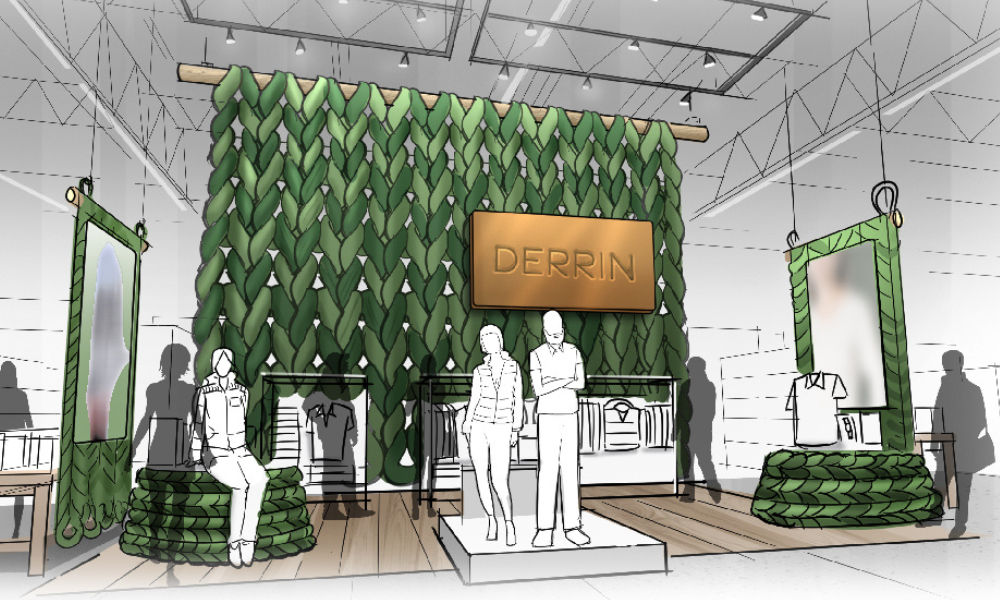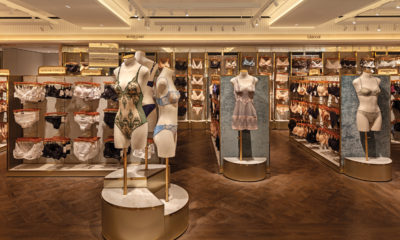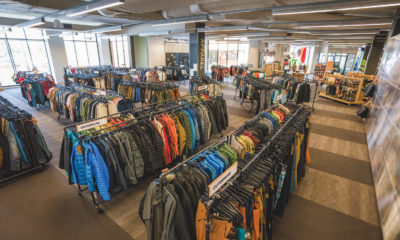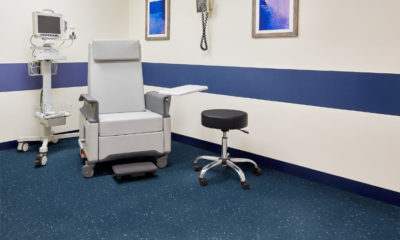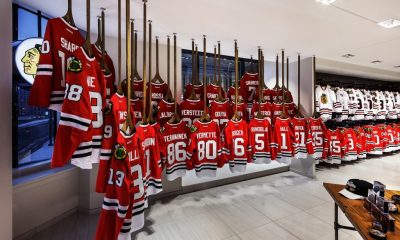The Minnesota lakes country, two-and-a-half hours north of Minneapolis-St. Paul, is an outdoorsy resort area that teems in the summertime with canoeing, fishing, kayaking, water skiing and the like. So when Supervalu-supplied grocer Chris Quisberg built his new Pequot Lakes store last year, the local design references seemed obvious enough: plenty of wood logs, a water-and-sky-blue palette and green pine tree graphics.
“Local relevance of store design is always our corporate focus,” says Harry Steen, creative design manager for Supervalu Store Design Services (Eden Prairie, Minn.). “It’s our mantra.”
But the designers aimed for something more subtle and sophisticated than a few fishing references. They wanted to create an entire rustic environment reflective not only of the resort cabins that proliferate in the area but also of the full-time population that lives and works there, in the small towns and on the farms.
The local architectural references start right at the entrance, a dramatically vaulted A-frame construction with metal shingles made to look like oversized logs, stacked stone pillars and exposed aggregate concrete on the front walls.
A pine tree logo over the door is repeated throughout the inside of the store, first in a large cut-tile floor design just inside the entrance and again on signage that marks the checkout stations.
Much of the signage, in fact, is meant to reference the area. So cabin-shaped aisle markers are named after various local lakes: Norway Lake, Whitefish Lake, Clear Lake, etc. And some of the merchandise departments also use local references, like the Sibley Lake Deli and Pequot Creamery. In other cases, woodsy outdoor terminology marks merchandise departments, like meats (Butcher Block). Genuine canoes hanging from the 26-foot ceiling bear the signage for the seafood (Lakeshore) and produce (Farmstand) areas.
“These canoes are not some designer’s fabrication,” says Steen. “We acquired them from local resorts. They’re really used, old and beat-up.”
Some of the departments are also marked by large black-and-white murals that the retailer commissioned from a local photographer. There’s a dramatic winter scene over the frozen food case, and one of fishermen casting from shore over the meats and seafood.
And then there are much more subtle uses of local references. Some of the signs are hung from the ceiling by actual logging chains. “This is a logging community,” says Steen, “so full-time residents will recognize the authenticity immediately.” Signage in the shape of split logs hangs over some of the frozen food cases, announcing cheese, milk and ice cream.
Dyed concrete flooring and abundant custom woodwork contribute to the warm, earthy appearance of the store’s interior. Vintage pressed tin is used as a wall treatment. There’s a big stone fireplace in the coffee shop and dining area, which also features deer antler chandeliers and vintage iron lanterns on the wall. And there’s an outdoor patio complete with cabin-inspired deck furniture for the milder weather.
In the fresh market department, fruits and vegetables are displayed in oak orchard bins meant to evoke produce merchandising of a century ago, and also in moveable refrigerated display pods. But these pods were designed for more than mere atmosphere. Since local authenticity is a major component of the design, the retailer had to acknowledge the Minnesota weather. Even though the boaters and water skiers of July and August are replaced by snowmobilers and cross-country skiers in January and February, store traffic recedes in the winter. And most of the freestanding fixtures are on casters, able to be unplugged and moved around – or even taken off the floor – as the seasonal volume diminishes.
“The area has its full-time residents,” says Steen, “and there are certainly year-round indoor activities here for tourists, like antique shops and great restaurants. But this is still Minnesota. When the temperatures plummet and the snows swirl, even the hardiest locals stay at home.”
Project Suppliers
Retailer: Pequot Lakes Supervalu, Pequot Lakes, Minn.
Design and Architect: Supervalu Store Design Services, Eden Prairie, Minn.
General Contractor: Nor-Son Inc., Baxter, Minn.
Lighting: Amerlux, Fairfield, N.J.; Lithonia, Conyers, Ga.
Millwork, Service Counters and décor: Capital Wood Products, St. Paul, Minn.
Refrigerated Cases: Hill Phoenix, Conyers, Ga.
Gondolas and Shelving: Lozier, Omaha, Neb.
Bakery Display and Cases: Structural Concepts, Muskegon, Mich.; Mark Steele, Columbus, Ohio
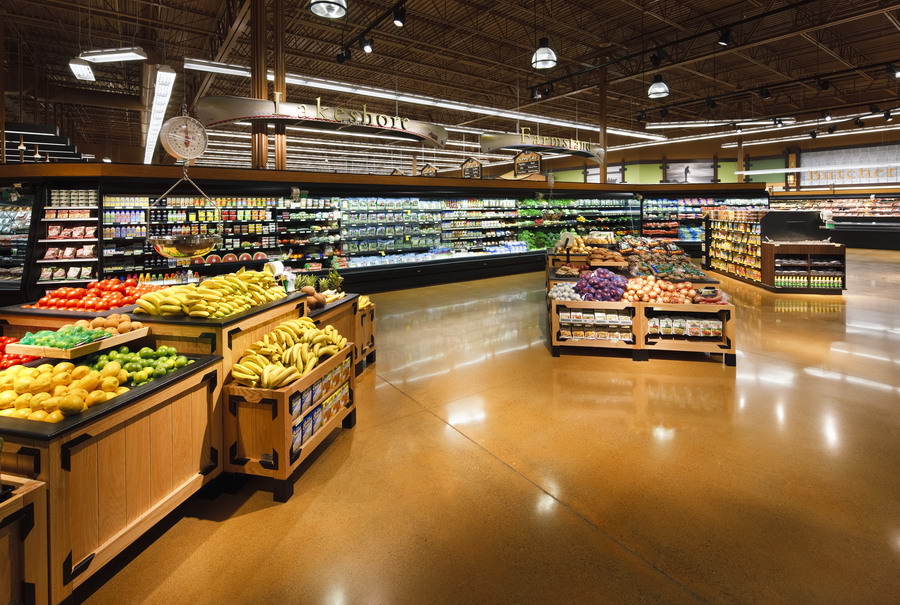

 Photo Gallery2 days ago
Photo Gallery2 days ago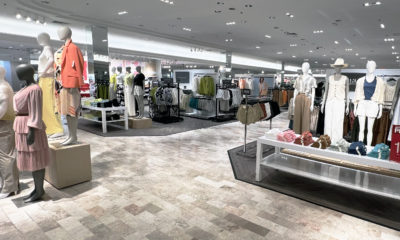
 Headlines1 week ago
Headlines1 week ago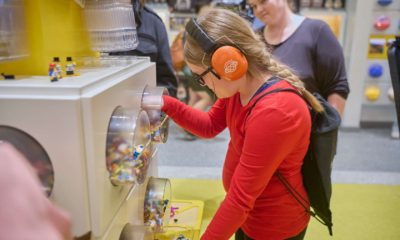
 Headlines2 weeks ago
Headlines2 weeks ago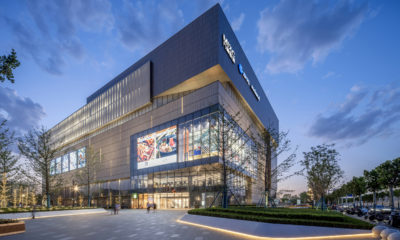
 Sector Spotlight2 weeks ago
Sector Spotlight2 weeks ago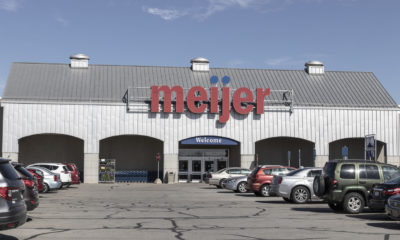
 Headlines1 week ago
Headlines1 week ago
 Headlines4 days ago
Headlines4 days ago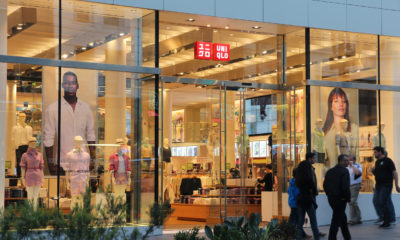
 Headlines2 weeks ago
Headlines2 weeks ago
 Designer Dozen1 week ago
Designer Dozen1 week ago
